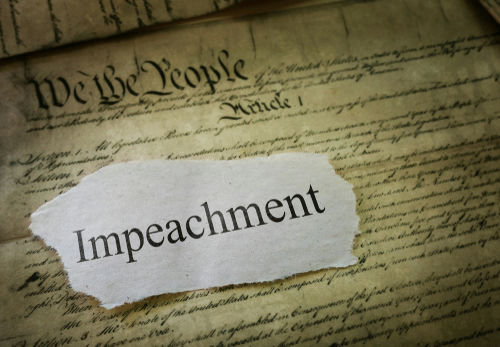When a sitting congressman calls to override the Constitution and let President Trump serve as long as he wants, Americans are left to wonder: Are our foundational limits under attack?
Ogles’ Call for a Third Term: A Direct Challenge to Constitutional Order
In August 2025, Tennessee Congressman Andy Ogles ignited a fierce nationwide debate by publicly urging that Donald Trump be allowed a third presidential term. Ogles posted on X (formerly Twitter), “Give Trump a third term, give him a Peace Prize, and let him run D.C. as long as he wants,” directly challenging the 22nd Amendment, which clearly restricts presidents to two elected terms. This move, instantly annotated by X’s Community Notes for its unconstitutionality, represents a rare and brazen call from a sitting federal lawmaker to disregard a foundational limit on executive power.
Ogles’ statement sparked immediate and widespread criticism from across the political spectrum. Prominent commentators and political figures—including Democrats and constitutional conservatives—condemned the proposal as an affront to the rule of law and the oath every member of Congress swears to uphold the Constitution. Some critics, such as former Republican Congressman Joe Walsh, accused Ogles of betraying his constitutional oath, while Democrat strategist Nina Turner called the statement “grounds for removal.” Despite this public and bipartisan outcry, Ogles has not retracted his remarks and continues to embrace his image as an unapologetic Trump loyalist.
Historical Roots and Constitutional Limits: The 22nd Amendment
The controversy centers on the 22nd Amendment, ratified in 1951 in response to Franklin D. Roosevelt’s unprecedented four-term presidency. The amendment explicitly limits presidents to two elected terms, and efforts to repeal or circumvent it have consistently failed. Ogles’ proposal—a constitutional amendment to allow a third Trump term—gained no traction when introduced in early 2024. No serious attempt to repeal the 22nd Amendment has advanced in Congress in modern times, underlining the strong consensus around this safeguard. Legal experts unanimously agree that only a successful constitutional amendment, an extremely high bar politically, could enable a third presidential term.
Ogles’ history makes his latest move less surprising to those familiar with his record. Since his election in 2022, he has positioned himself as a staunch Trump ally and has a pattern of provocative, attention-grabbing actions—such as Christmas cards with his family brandishing rifles and inflammatory social media posts. Critics accuse him of consistently testing the boundaries of constitutional and political norms, while supporters argue he is representing the will of a conservative base frustrated with establishment politics and perceived leftist overreach.
Fallout: Backlash, GOP Identity Crisis, and Implications for Constitutional Norms
The immediate fallout from Ogles’ remarks was not limited to social media outrage. Congressional leaders, media figures, and grassroots activists entered the fray, debating not only Ogles’ fitness for office but also the ongoing influence of Donald Trump over the GOP. Trump himself, the central figure in this controversy, benefits from continued loyalty among lawmakers—even when that loyalty spills into open challenges to constitutional boundaries. The episode exposes the deepening fissures within the Republican Party: between those who see constitutional limits as inviolable and those willing to test, or even rewrite, foundational rules to advance their preferred leader.
Experts warn that repeated challenges to constitutional norms—even unsuccessful ones—can erode public trust in government and the rule of law. While Ogles’ proposal is legally impossible without a constitutional amendment, the willingness of a sitting congressman to publicly advocate for ignoring the 22nd Amendment sets a troubling precedent. For many conservatives, this episode is a stark reminder that constitutional protections—especially those limiting executive power—are essential to preserving liberty and the American system of government, regardless of who occupies the Oval Office.
Top Republican under fire for suggesting Trump get third term and run DC for ‘as long as he wants’ https://t.co/1IewE5wnRa via @@YahooNews
A Soviet/dictator style government. Anyone voting GQP is a traitor.— Frank (@Frank33470271) August 18, 2025
As of now, no formal action has been taken against Ogles, and his proposal remains politically untenable. Yet the controversy underscores the need for constant vigilance in defending the Constitution amid shifting political winds. The backlash from both sides of the aisle reveals a broad consensus: the integrity of American democracy depends on upholding its foundational limits, even when partisan passions run high.
Sources:
Plural Policy Profile: Andy Ogles
LegiStorm – William Andrew Ogles IV

